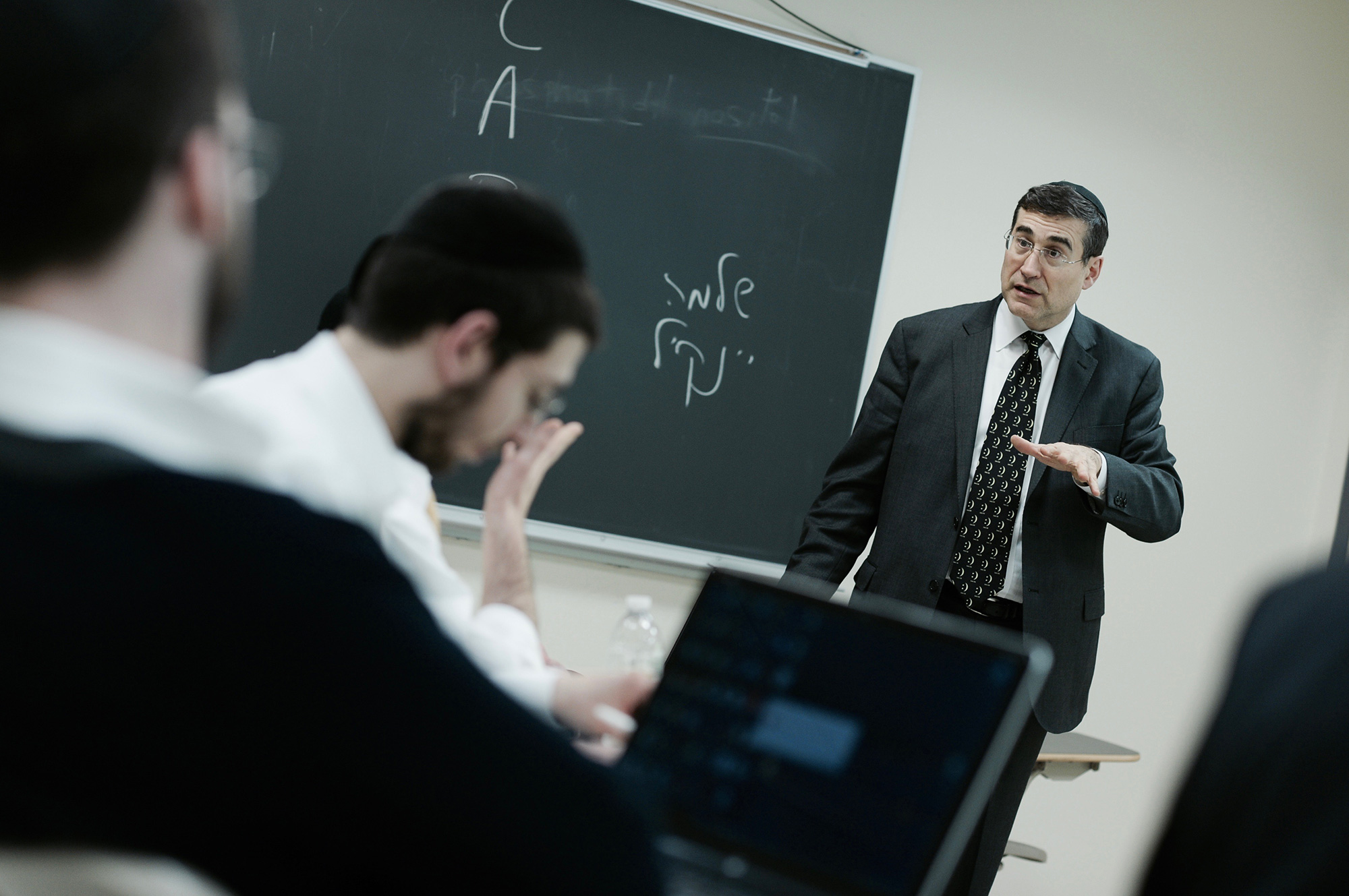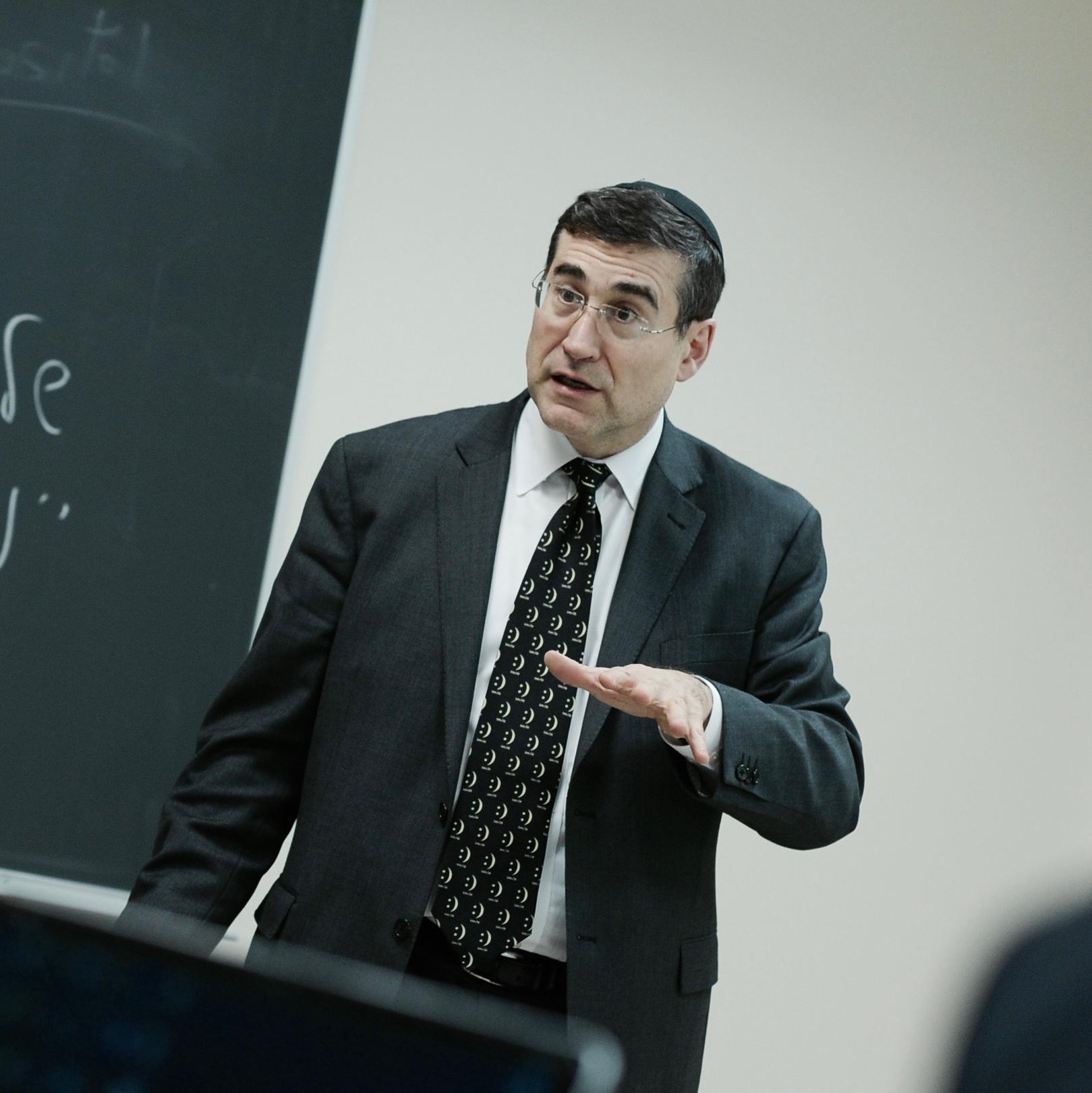7 Tips for Teachers, from Rabbi Dr. Shmuel Klammer
The Graduate School of Jewish Studies professor shares his advice for aspiring teachers.

Veteran educator Rabbi Dr. Shmuel (Stuart) Klammer, who earned his Ed.D. in Curriculum and Teaching from Columbia University, is currently an adjunct professor at the Graduate School of Jewish Studies and Lander College for Men. Previously the principal of The Hebrew Academy of Long Beach and The Maimonides School, he currently serves as Head of School at Shulamith in Brooklyn. His GSJS alumni have earned successful placements in schools such as HAFTR, DRS, Darchei Noam, Lander College for Men, and more; and in shuls all over the country from Philadelphia to Queens, Los Angeles to Monsey.
Here, he shares his seven pieces of wisdom for aspiring teachers.
- Teach students to love learning. “If I had to share the essence of teaching in a sentence—standing on one foot, so to speak—it’s that you need to inspire the students to love learning. As Rashi says on the first pasuk of Parshas Beha’aloscha, “light the flame, until the flame burns brightly on its own.” You have to care, you have to inspire, and you have to give real, significant content… the rest are pratim, details.”
- Care about children. “Children and parents need to know you love them, and you care deeply about them. You’re not ‘teaching gemara’ or ‘teaching tanach’, you’re teaching students. If you keep this philosophy in mind, you’ll ensure that you’re treating each student as he or she deserves to be treated: like an individual.”
- Study hard. “Understand that teachers need to be professionals. There are standards and best practices of pedagogy; you can’t just go into the field after just an x number of years. You have to educate yourself constantly and remember that teaching, like any other profession, is a learned skill.”
- Get experience. “Students who teach while earning their master’s here get far more out of the program—I’d even venture to say twice as much—as those who don’t, because they have a lab every day: the classroom. In education, you need practice and theory. If you have practice and no theory, you’re not analyzing yourself enough. You need a place to try your lessons out, and see how they work. But a degree without practice is obviously worth little.”
- While you do get experience, try different grade levels. “There are lots of different age levels, so someone may be amazing teaching second-graders but weak teaching the twelfth grade. Figure out the grade level or age you are best equipped to teach. In the same vein, aspiring teachers should keep in mind that one approach might have worked in last year’s third grade, but isn’t working in this year’s third grade. Be flexible and constantly shape your teaching approach, and lessons, to each grade and class.”
- Use technology. Creativity in your lessons creates a sense of excitement and passion for the student and professor. One easy way to be creative is to play around with different educational technology tools that are available nowadays for the modern teacher. For example, at the very least, I encourage our students to create PowerPoints and Prezis as a supplement to the lessons they give in schools. And in one of the Practicum graduate classes I teach, I videotape students giving mock lessons. Then I, the student, and his or her peers give feedback based on standard teaching rubrics and guidelines I hand out to the students beforehand.”
- Check, check, check that your students are with you. “If teachers at every level would be checking for understanding—reviewing, making sure the class is with them (versus just lecturing without pause)—it would make a tremendous impact on the amount of material their students are absorbing. Nechama Leibowitz, a”h, whom I studied under, was a master at this. Every five minutes, she would check that her students understood the material and were with her. And she’d do it with each student, not just a few. I’d even say that this one, single tip—checking for understanding—would make the biggest improvement on the effectiveness of our education system as a whole.”


